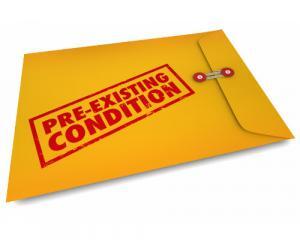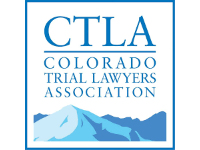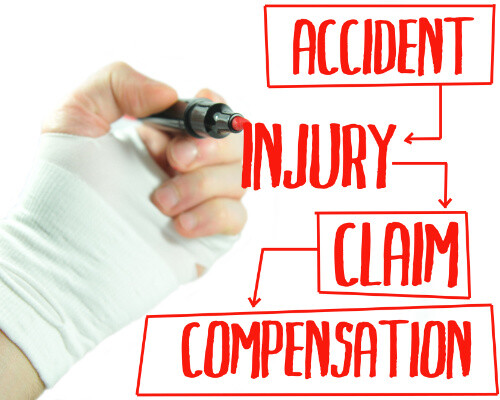Since it was your fault that the accident happened, in the eyes of the law, it is only fair that you compensate the injured parties for any costs resulting from the accident or injuries. Most people won’t just hand over this money without a legally binding agreement, which is where the lawsuit comes into place. There are multiple factors that can affect each different claim and every case is different so it is important to understand the ins and outs of personal injury law if you want to come out the other side of this lawsuit without being taken advantage of by the opposing parties lawyer.
Generally, you will have notice before a lawsuit is filed, as an attorney for the injured party will often reach out to you or your insurance company to try to negotiate. Lawsuits are expensive and risky for all parties, so it’s generally not the best move to sue someone right away unless negotiations break down.
The first notification you will get that you are in danger of being sued is typically when you receive a demand letter from the injured party and their attorneys. This demand letter notifies you that the injured party thinks you were responsible for the accident and they are demanding that you pay for the bills that have accrued from the accident/injuries. This letter will outline the details of the accident, how they think your actions were negligent and ultimately caused the accident and also the bills that need to be compensated for. In the case of a car accident, this letter will rarely be sent to you directly, but instead will be sent to your insurance company. In some cases, however, such as if the injured party does not know the identity of your insurance company, a lawyer or individual could send the first communication directly to you.
If you get one of these letters and you have insurance, that is precisely what insurance is for. Notify your insurance company right away and forward the communication to them. They will deal with the issue on your behalf. It’s important not to neglect this step, because many insurance policies require that the insured person notify the company within a certain time period if there is going to be a claim made against the insured, or you could lose coverage.
If instead of getting a demand letter you are instead served with a summons and copy of a complaint, this means you are being sued. When you’re being sued, it’s always wise to get an attorney on your side who knows how to deal with the ins and outs of that particular type of lawsuit. In the most common scenario, you’d likely be sued for negligence, perhaps resulting from a car accident, or maybe from an injury that occurred in your home or your place of business. In these circumstances, the best advice is to call your insurance company right away. If it was a car accident, call your auto insurance company. If it was another type of accident, you should call your homeowners insurance, renters, or excess insurance company right away. You’re paying good money for insurance. These policies will most likely afford you an attorney paid for by the insurance company to protect your interests and defend the claim against you.
Additionally, if you’re being sued or receive a demand letter for an incident you think was not your fault, or if you were also injured in the incident, it’s imperative that in addition to contacting your own insurance company right away, you also immediately start looking for your own personal injury plaintiff’s lawyer. The way the law works in Colorado is that all claims have to be presented in the same case, with only very limited exceptions.
What this means is that if you were involved in a car accident where you and the other driver were injured, you may both have a claim against each other, depending upon who was mostly at fault. If you get sued first and fail to file a counterclaim within the required period of time, you may be precluded from asserting a claim for your injuries later. These situations are extremely stressful, but fortunately they are also relatively rare. If it happens to you, call your insurance company so you get a defense attorney, and call a plaintiff’s attorney to explore whether you may have a counterclaim to assert in response to the lawsuit. The defense attorney provided by your insurance company will often not be able to represent you on the counterclaim.
Colorado is a modified comparative negligence state, meaning that if the involved party is deemed 50% or more at fault for the accident, then they are precluded from recovering any compensation from the other party. Additionally, if the injured party was 20% at fault for the accident, then the total amount of the judgment will be reduced by 20%, and the most they can recover is 80% of the total. The degree of fault relative to each person can be a hard thing to determine, especially if there is little evidence to prove what actually happened or why the accident happened in the first place. Not every case has a ton of clear evidence to show fault, so make sure you come prepared and have all the supporting documents possible when it comes time to defend yourself from being considered at fault.
All of these situations make a good case for why you should be trying to remove any blame from yourself or at least seek to reduce it as much as is possible under the law and facts of your particular case. This is especially true if you were also injured in the accident, as you will not be able to recover at all if you are deemed to be 50% or more at fault.
Speak with your injury attorney in great depth about your case, what happened, if you did anything wrong, if there was a reason you had to do something that caused the accident or anything else that could help. Your attorney will look at all the details and find any areas that they can deny your fault or at a minimum show that the other party’s actions were partially to blame for the outcome. When you can do this well enough, the case becomes much easier to deal with and settlement amounts will be drastically reduced so make sure you get it right the first time.
Unfortunately, there is no solid answer to this question because every personal injury case is different. Some will have million dollar settlements and some will have a few thousand dollar settlements. This all comes down to the dollar amount of medical bills, property damages, pain and suffering, lost wages or income and in some cases punitive damages when the defendant acted willfully dangerous. Of course, your insurance coverage plays a large part in how much you will have to pay as well, but we will get into that in the next section.
Yes and no is the short answer. Depending on the type of accident that occurred and whether you have insurance to cover these types of accidents will play a major role in how much your insurance covers. If you got in a car accident but didn’t have insurance, then you will be stuck paying the whole bill. If you had the bare minimum insurance, then you can be stuck paying the bill that exceeds the amount you are covered for.
In some cases, you may not be covered even if you have insurance. This depends on how the accident occurred and if you were acting willfully negligent when you caused the accident. In cases like those, your insurance company will do everything they can to deny paying for compensation.
Let’s say someone suffered a slip and fall accident on your business property and you only have workers compensation insurance. In this case, you would have to cover the entire costs of the settlement because you didn’t have an insurance policy that covers slip and fall accidents at the time that the accident took place. Always make sure you have extensive insurance coverage in any area that you may have liability or you could end up paying for it in the long run if an accident does happen and you were at fault.
Having the appropriate amount of insurance and the right type of insurance is the most important determining factor in whether you will have to pay any money out of pocket, or to limit the amount of money you may be responsible for yourself. If you have substantial assets, like money in the bank, a house that is fully paid for, or other properties, you want to make sure these assets are safe in the event you are at fault for injuring another person. Colorado law only requires drivers to have $25,000 in bodily injury coverage, but this often will only cover an ambulance ride and one night in the hospital if you cause an accident. Make sure you have as much coverage as you can afford to limit your exposure to having to pay a civil judgment.
Many people think they have “full coverage,” but that might not always be the case. What full coverage means can differ from person to person. You may be covered for a variety of different types of things, but if your limits are too low to meaningfully protect your assets, you can be exposing yourself to having to pay out of pocket.
Many cases will have the option of choosing a lump sum vs structured settlement compensation package which means you will either pay the damages due all at once in one lump sum payment or you will be paying a certain amount to the plaintiff every month, quarter, year or other arranged timeline. Lump sums are usually in cases where all of the injuries have been treated fully and there will not be any ongoing costs associated with those injuries. Structured settlements will usually be chosen if the injuries require ongoing treatment, compensation for lost wages long in to the future or other ongoing financial burdens.
Every injury case has a ton of details that will need to be gone over with a fine toothed comb and to ensure you are getting the best possible results for yourself, it is always recommended that you enlist an experienced personal injury attorney to help guide you through the process and catch all of the small details that you wouldn’t have thought of.
Attorneys that deal with injury cases every day know the ins and outs of injury claims and how to deal with them in beneficial ways. An untrained eye would not notice a lot of these things or have any idea how to deal with these details even if they did notice them. You may think you can get away without enlisting the help of an attorney, but it is very rare that a non-attorney can get the same kind of results that a knowledgeable injury attorney can, especially in complicated claims with lots of moving parts.
At Rector Stuzynski LLC, we have been specializing in personal injury claims for decades and we have the results to prove that our work is second to none. With countless happy clients on our roster and over 100 five star reviews, you can be sure that you are getting the best personal injury representation available in Colorado Springs. Don’t hesitate to reach out to us, we offer free case consultations 24/7 over the phone or you are more than welcome to stop by our office and meet with our attorneys in person to see why our clients speak so highly of us. Call today at (719) 578-1106.







